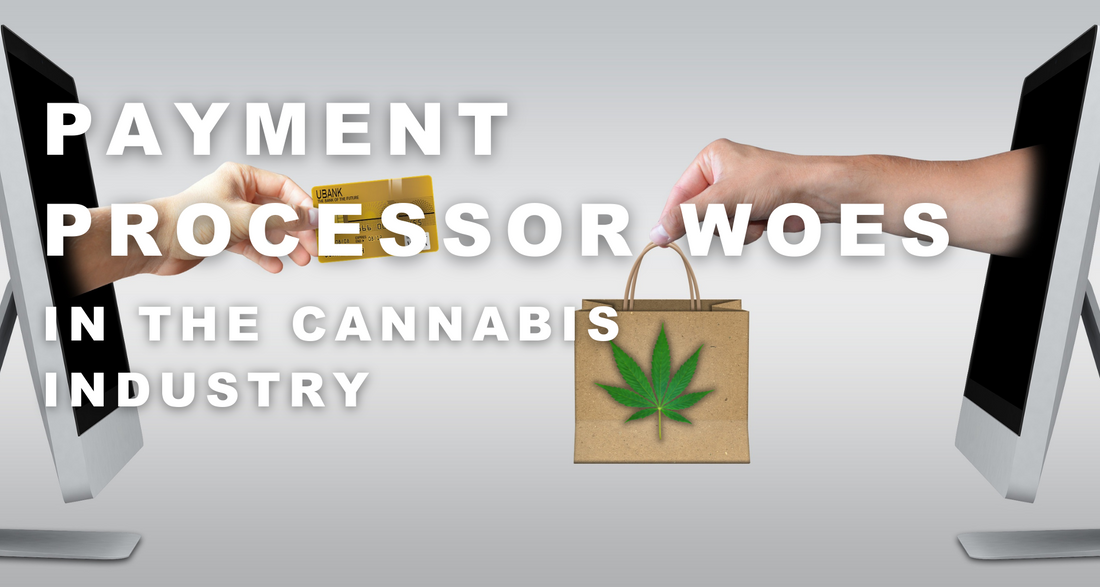
News
The Cannabis Industry is No Stranger to Payment Processor Woes
The Cannabis Industry is No Stranger to Payment Processor Woes
In a society where personal choice is seemingly being held to a higher standard, we still see a myriad of adult industries being persecuted by the financial sector. OnlyFans, a social media platform where fans pay to follow individuals who post exclusive content, photos, and videos on the platform, announced last month that on October 1st it would completely ban all sexually explicit content.The onlyfans.com website which has over 100 million users and more than 1.5 million content creators has become heavily tied with sexually explicit material. It has also become famous as a place where sex workers are paid in a safe manner. Many, of whom lost their jobs during the pandemic, have expressed outrage at what they see as a betrayal of the community that enabled their enormous success. The company has since suspended its decision to ban explicit content after receiving widespread backlash over the proposed policy change, citing the original push as a need to comply with bank partners' guidelines.
A Familiar Story
Like the sex work industry, the cannabis industry has also had a shaky reputation with big banks. From the beginning, the cannabis industry has had to circumvent traditional payment processors due to federal legality status. Why are we seeing such movement towards these forms of financial censorship in such fast-growing and highly profitable industries that service consenting adults?
The Unique Power of Payment Processors
OnlyFans' decision to attribute the change to payment companies in its policy reflects how the financial sector is turning the tide against sites that have adult content sharing. With OnlyFans only being the latest victim, Pornhub and YouTube were also cut off from payment processor services Mastercard, Visa, and Discover for sexually explicit content, including from children and non-consenting adults. Both sides tried to repair the damage by removing content from unsolicited accounts and promising to hire more moderators. Mastercard and Visa have since then restored their services to the sites.
Is Diversification a Feasible Solution?
Payment processor services are opaque and costly and these types of web platforms, such as adult sites, are struggling to strengthen the financial chain. Moreover, the problem faced by individual sex workers is that when banks and payment processors ban them, there is little recourse to non-gender transactions. The turnaround underscores the need for creators to diversify and remain present on multiple platforms. It would be difficult for them to leave the platforms on which they have built their fan base, especially if they face the additional challenge of selling adult content. If OnlyFans decides to serve adult content and the creators retain their mainstream status, it could win this round, but the banks hold a lot of cards.
Problems with Credit Cards and Cannabis
Accepting credit cards may sound tempting, but it is not the safest option for financial institutions until federal legislation provides clarity and protection for card payment services. Payment providers offering credit card payment solutions to cannabis companies that do not comply with federal law could face financial or criminal penalties. From fines to hiding money in escrow accounts to active legal proceedings, including criminal proceedings, there are potential problems with the use of credit cards in the cannabis space.
A Possible Step Forward
However, there is light at the end of this tunnel with the Cannabis SAFE Banking Act. This act aims to allow financial institutions to invest and implement payment processor solutions to the cannabis industry without the fear of being prosecuted on a federal level. If passed, more banks and financial institutions will feel comfortable offering additional banking services to the cannabis industry. However, until cannabis is legal and removed as a Class 1 drug, major banks and credit card companies will continue to ban transactions with cannabis. These requirements could apply to cannabis companies as the industry is not supported by domestic banks and processors.
The Strange Relationship Between Cannabis and the Financial Sector
While many retail service providers support high-risk industries, not all are willing to accommodate cannabis distribution customers. Many of the problems associated with processing cannabis credit cards have to do with the fact that, while some marijuana-related companies have legitimate bank accounts (many do not for the reasons described below), the money they get from processing services goes elsewhere. When a customer buys something from a seller with a debit or credit card, the money is sent to a digital processor that finds its way into the seller's bank account. The simple reality is that most cannabis companies that can accept cards and other forms of digital payments will find some kind of loophole and some organizations that process cannabis credit cards do not even know they offer services to marijuana organizations.
A “High Risk” Classification
Now that you are familiar with some of the most popular payment options for cannabis in the marijuana industry, it is time to discuss credit and debit card transactions that are not traditionally handled by cannabis dealers. As we mentioned earlier, it should be obvious that marijuana companies have no problem accepting credit or debit card payments. In short, because cannabis is still illegal at the federal level, credit card companies such as American Express, Visa, and Mastercard as well as financial institutions like Bank of America and Wells Fargo will not work to manage money for cannabis businesses including medical marijuana dispensaries. The fact that cannabis is illegal at the federal level is also the reason why banks will not offer business loans to anyone who wants to establish a cannabis dispensary.
In addition, large financial institutions and other small payment processors and payment platforms that serve cannabis businesses classify businesses in the marijuana industry as high-risk businesses, resulting in cannabis dealer accounts becoming more expensive, even if one is able to do one. The illegal status of cannabis also means that firms in this industry are not eligible for the type of deductions some companies enjoy. Things are getting better but the introduction of credit card processing is still a ground-breaking development. While we’re seeing a societal shift where the cannabis industry and sex work industry are becoming less taboo, there is still a long road ahead before we see widespread acceptance with the financial sector. Huge strides have been made with the Cannabis SAFE Banking Act and, with the various wins that adult entertainment has had against big banks, most recently OnlyFans, it’s safe to assume that we’re moving in the right direction.






